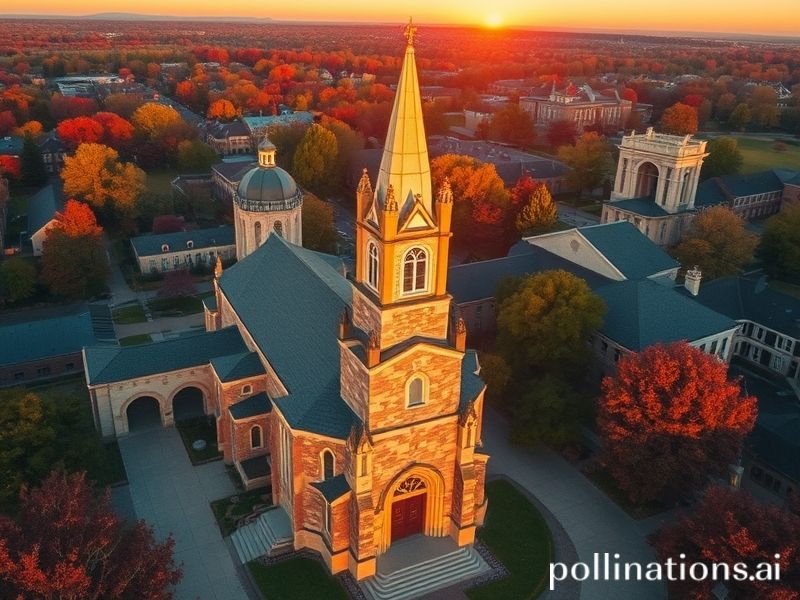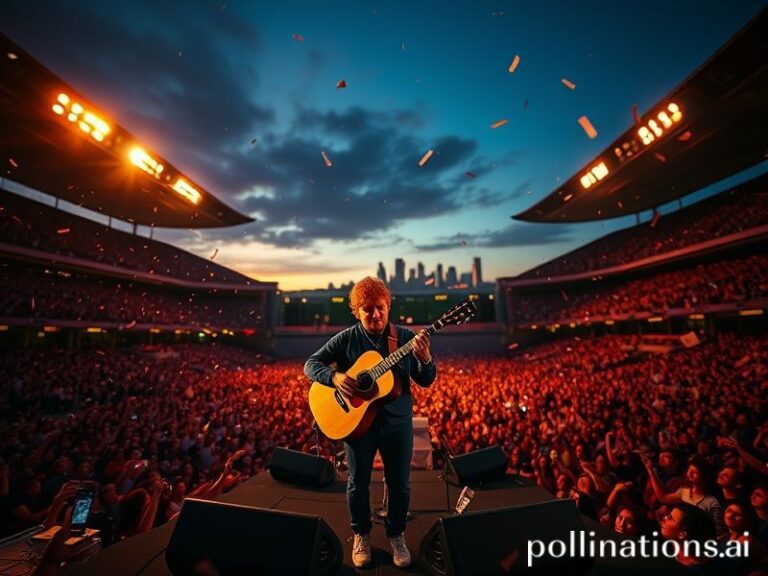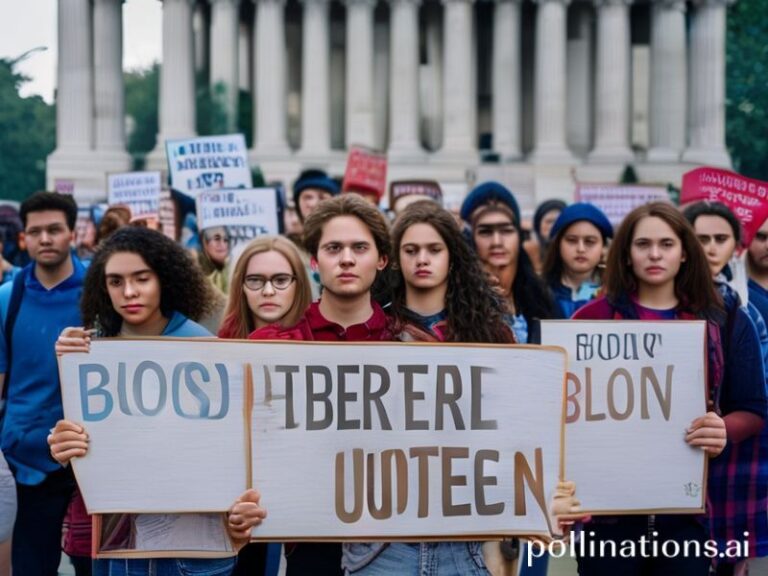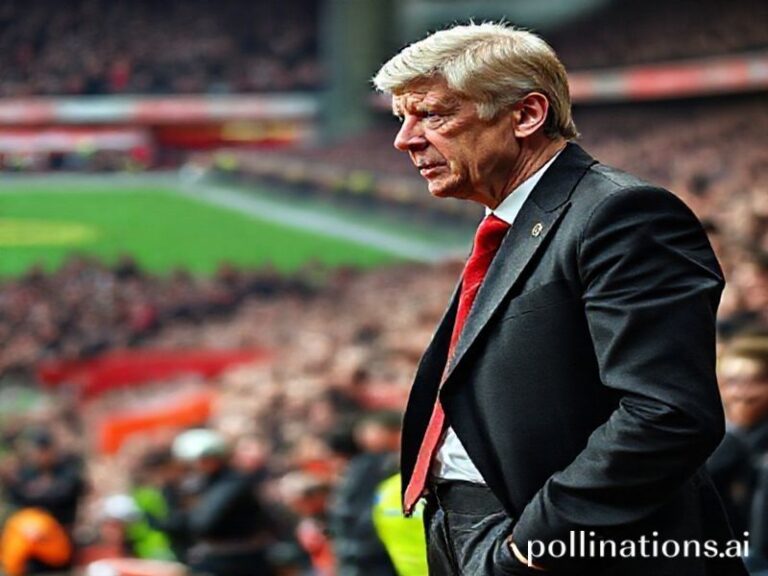Villanova University: Ivy-Covered Bastion of Hope in a World Flunking Its Finals
Villanova University: A Philadelphian Fortress of Higher Learning in a World That’s Already Flunking
Philadelphia—If you squint past the Liberty Bell’s selfie-stick gauntlet and the Eagles fans cos-playing as gladiators in body paint, you’ll find Villanova University nestled in the leafy suburbs like a well-fed cat that knows it’s being watched. From an international vantage point—somewhere between the smoking rubble of Kyiv’s universities and the air-conditioned panic rooms of Hong Kong’s shrinking academic freedoms—Villanova looks almost indecently serene. Its 260-acre campus, manicured with the precision of a Swiss bank lobby, offers a vision of what higher education might resemble in a timeline where humans never invented tuition inflation or Twitter mobs. Spoiler: we do not live in that timeline.
Founded in 1842 by Augustinian friars fleeing European revolutions that were, frankly, ahead of their time, Villanova has evolved from a modest seminary into a $1.7 billion endowment machine. That figure alone is enough to make the finance ministers of several sovereign nations weep into their spreadsheets. While Greece still can’t pay back its IMF loans, Villanova’s accountants are presumably debating whether to hedge their private-equity exposure in yen or Swiss francs—such are the dilemmas of moral theology in the twenty-first century.
Globally, the university’s brand translates into a peculiar dialect of American soft power. Its basketball team, the Wildcats, has become a cult export from Jakarta sports bars to Lagos betting apps, where March Madness brackets serve as a proxy stock market for people whose actual stock markets are on life support. Every buzzer-beater is a subtle reminder that while your passport may confine you to currency crises, a 19-year-old from Delaware can catapult your entire GDP’s worth of hope into a three-pointer. The IMF calls this “transnational affective capital.” Everyone else calls it gambling.
Academically, Villanova’s business school—ranked top-20 by whatever ranking body hasn’t been bribed this week—churns out consultants who parachute into Dubai boardrooms to explain why their petro-economy needs more “synergy.” Meanwhile, its engineering labs 3-D-print water-filtration devices for villages whose governments are too busy laundering World Cup bribes to notice. The irony is artisanal: the same technology used to prototype designer sneakers for oligarch spawn also keeps cholera at bay. One suspects the universe is trolling us.
Yet beneath the ivy and the strategic philanthropy lurks the existential hiccup afflicting all Western institutions: relevance in a world where TikTok now educates more teenagers than calculus. Villanova’s core curriculum still forces sophomores to wrestle with Augustine’s Confessions—an exercise akin to handing Gen Z a rotary phone and expecting them to order bubble tea. Still, there is something perversely noble in obliging future fintech bros to confront the guilt of a 4th-century bishop before they mortgage the planet on crypto futures.
Internationally, Villanova’s study-abroad footprint—Rome, Singapore, Cape Town—functions as a diplomatic Rorschach test. In Rome, students learn about papal infallibility while the Eurozone debates whether Italy’s debt is merely grave or actively decomposing. In Singapore, they discuss ethical leadership under a regime that fines people for chewing gum. And in Cape Town, they volunteer for water-conservation projects during municipal shortages that the city politely calls “Day Zero” instead of “We’re All Going to Die of Thirst.” Each passport stamp is a gentle reminder that privilege is the original non-fungible token.
And so Villanova soldiers on, a genteel fortress of Jesuit-adjacent optimism in an era when the global syllabus appears to be written by a committee of deranged algorithms. Its graduates will go forth to balance spreadsheets, defend depositions, or—God help us—run for Congress, armed with the certainty that human dignity still outranks quarterly earnings. Whether that conviction survives first contact with reality is, of course, the final exam none of us can retake.







